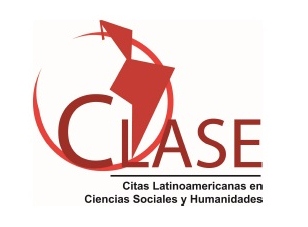Rorty y Fraser en torno a la distinción entre redistribución y reconocimiento: un debate abierto
Resumen
Recepción: 28 de agosto de 2016 Aceptación: 17 de septiembre de 2016 El objetivo del siguiente trabajo es analizar y valorar las posiciones vertidas entre los filósofos norteamericanos Richard Rorty y Nancy Fraser en torno al debate entre la redistribución y el reconocimiento como categorías necesarias para la teoría de la justicia en el ámbito de la filosofía política. Voy a reconstruir brevemente sus respectivas posiciones al respecto y, posteriormente, intentaré acercar sus propuestas, así como valorar e interpretar sus diferencias. Las nociones en torno a la distribución y el reconocimiento que los autores desarrollan en este debate generan un ambiente propicio para la argumentación en la medida en que permiten acercar sus posturas o minimizar sus diferencias para lograr un escenario de acuerdo o coincidencias entre ambos. Por ello pretendo mostrar que sus argumentos son más parecidos de lo que parece a primera vista y que una parte de sus diferencias obedece a que algunas de sus consideraciones sobre la justicia se mueven en dos planos diferentes de interacción social, el individual y el institucional, además de que tienen una noción distinta sobre el papel de la filosofía en la acción política y en los requerimientos para una mejor vida social.Citas
BARRY, B. (2001). Cultural and Equality: an Egalitarian Critique of Multiculturalism. Cambridge, MA: Harvard University Press.
BENSAÏD, D. (2004). Cambiar el mundo. Madrid: Catarata.
BUTLER, J. (1998, 1 de enero). Merely Cultural. New Left Review, 227, 33-44.
DEL CASTILLO, R. (2015). Rorty y El giro pragmático. Madrid: Bonalletra Alcompas.
FRASER, N. (1990a). Rethinking the Public Sphere: A Contribution to the Critique of Actually Existing Democracy. Social Text, 25/26, 56-80.
FRASER, N. (1990b). Solidarity or singularity? Richard Rorty between Romanticism and Technocracy. En Malachowski, A. (ed.), Reading Rorty. Critical responses to Philosophy and the Mirror of Nature (and Beyond) (pp. 303-320). Oxford: Basil Blackwell.
FRASER, N. (1997). Iustitia Interrupta. Reflexiones críticas desde la posición “postsocialista”. Bogotá: Universidad de los Andes.
FRASER, N. (2000). Nuevas reflexiones sobre el reconocimiento. New Left Review, 4, 55-68.
FRASER, N. (2006a). La justicia social en la era de la política de la identidad: redistribución, reconocimiento y participación. En ¿Redistribución o Reconocimiento? Un debate político-filosófico (pp.17-88). Madrid: Morata.
FRASER, N. (2006b). Una deformación que hace imposible el reconocimiento: Réplica a Alex Honneth. En ¿Redistribución o Reconocimiento? Un debate político-filosófico (pp.149-175). Madrid: Morata.
FRASER, N. y HONNETH. A. (2006). Introducción. En ¿Redistribución o Reconocimiento? Un debate político-filosófico. Madrid: Morata.
FRASER, N. (2008). La justicia social en la era de la política de identidad: redistribución, reconocimiento y participación. Revista de Trabajo, 4(6), 83-99.
FRASER, N. (2008). Escalas de Justicia. Barcelona: Herder.
GITLIN, T. (1995). The Twilight of Common Dreams: Why America is Wracked by Culture Wars. New York: Metropolitan Books.
IGLESIAS, C. (2012). Justicia como redistribución, reconocimiento y representación: Las reconciliaciones de Nancy Fraser. Investigaciones Feministas, 3, 251-269.
RAWLS, J. (1995). Teoría de la justicia. México: Fondo de Cultura Económica.
RORTY, R. (1999). Forjar nuestro país. El pensamiento de izquierdas en los Estados Unidos del siglo XX. Barcelona: Paidós.
RORTY, R., (2000a, Febrero). Is Cultural Recognition a Useful Concept for Leftist Politics? Critical Horizons, 1:1, 7-20.
RORTY, R. (2000b). Feminismo y pragmatismo. En Verdad y Progreso. Escritos filosóficos 3. Barcelona: Paidós.
YOUNG, I. M. (1997, Marzo). Unruly Categories: A Critique of Nancy Fraser’s Dual Systems Theory. New Left Review, 222, 147-160.
Una vez que un texto es aceptado para su publicación en Quadripartita Ratio, sus autores deben firmar dos documentos de carácter legal: una Licencia de uso y una Declaración de autoría.
Con la Licencia de uso, los autores autorizan la publicación de su obra y la difusión de ésta (integración en bases de datos, difusión en nuestras redes sociales, reediciones posibles, etc.). No obstante, se autoriza la descarga, reproducción y distribución de todos nuestros contenidos publicados, siempre que no se modifique el contenido y se indique su origen (nombre de la revista, volumen, número, páginas y dirección electrónica del documento).
Con la Declaración de autoría, los autores manifiestan que la obra es de su autoría, original e inédita.









